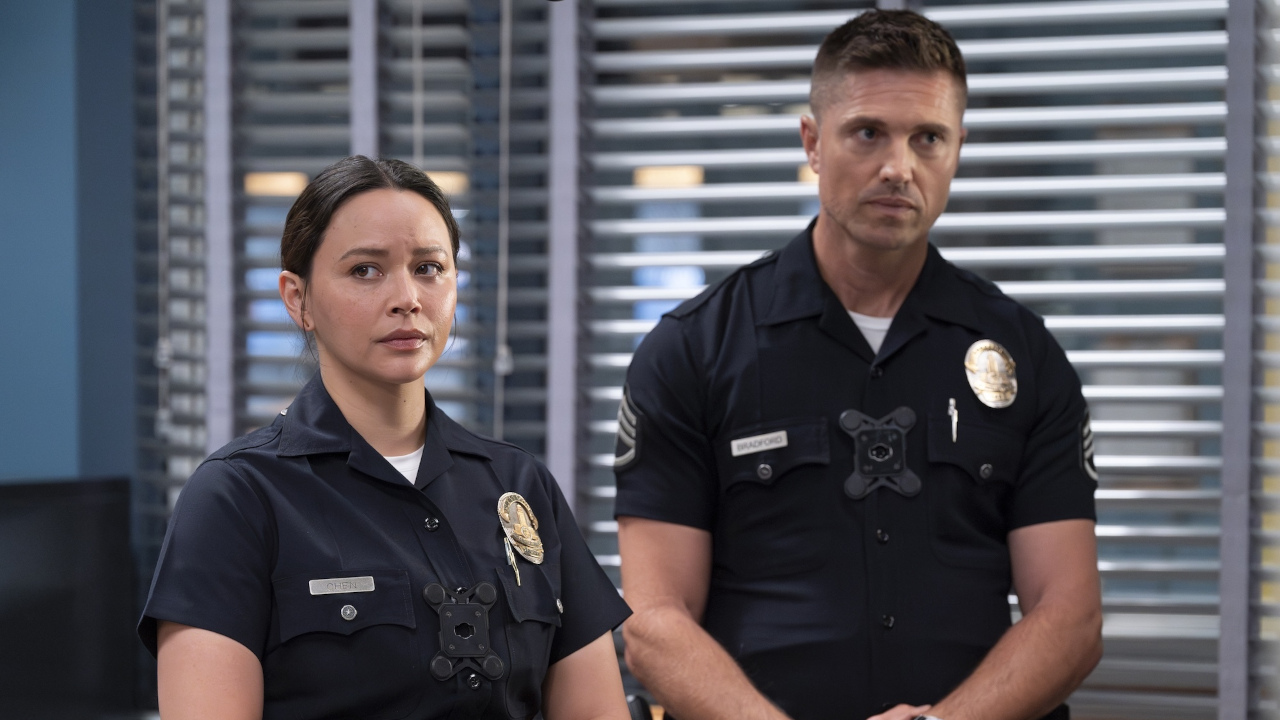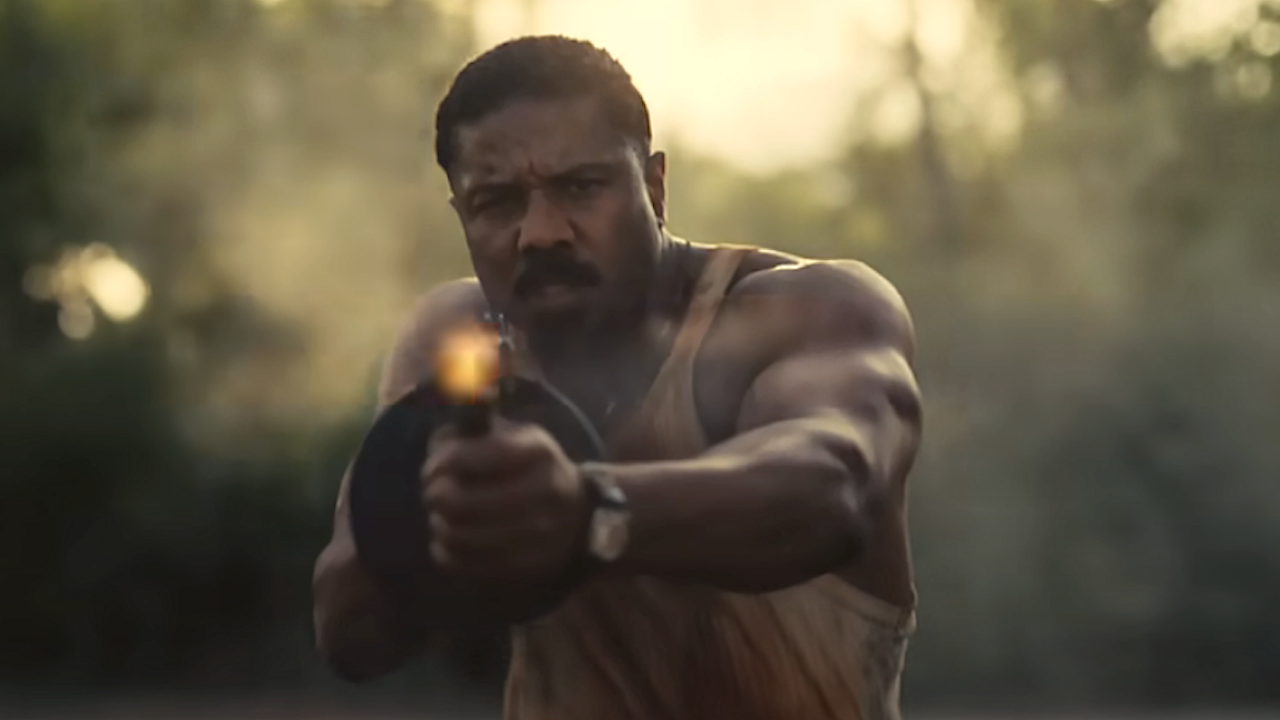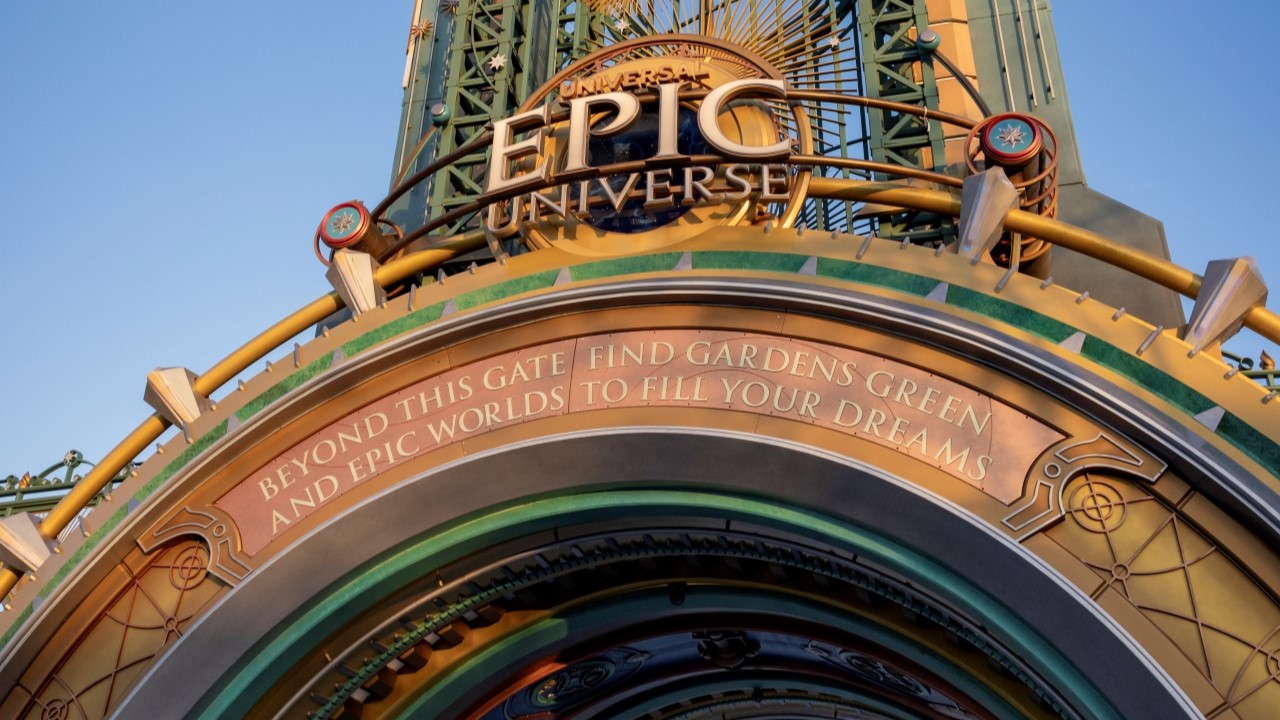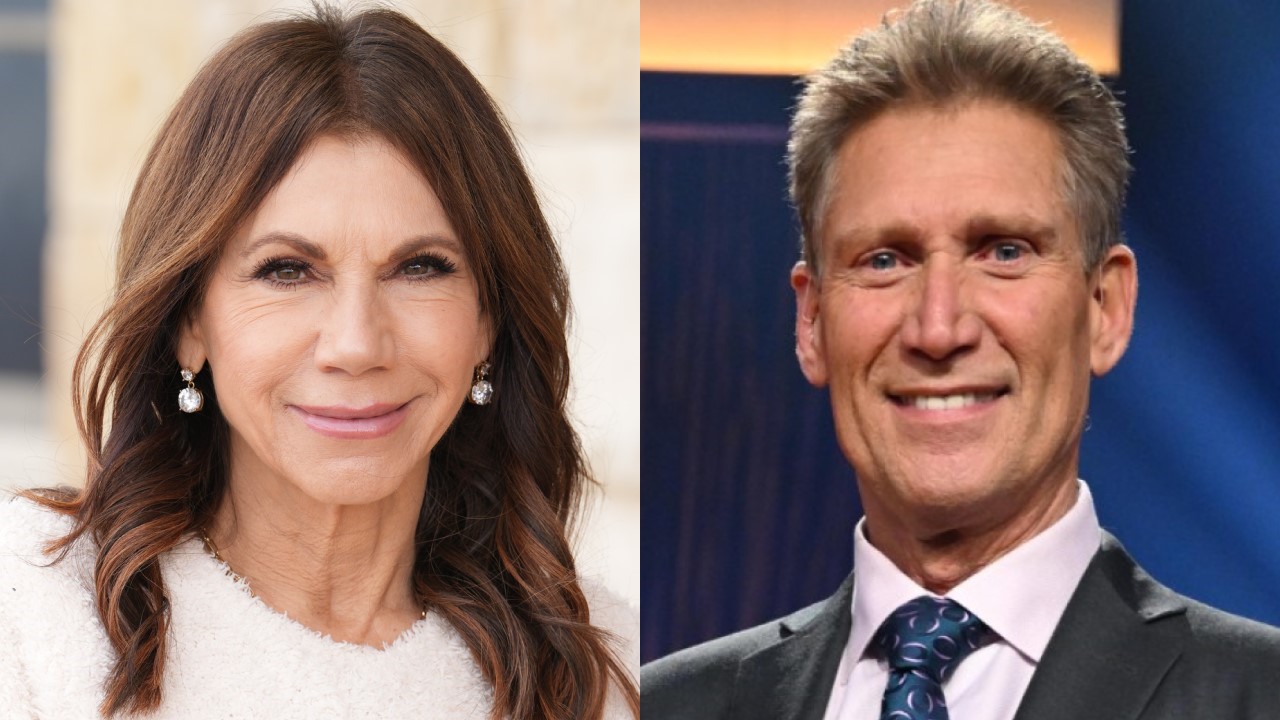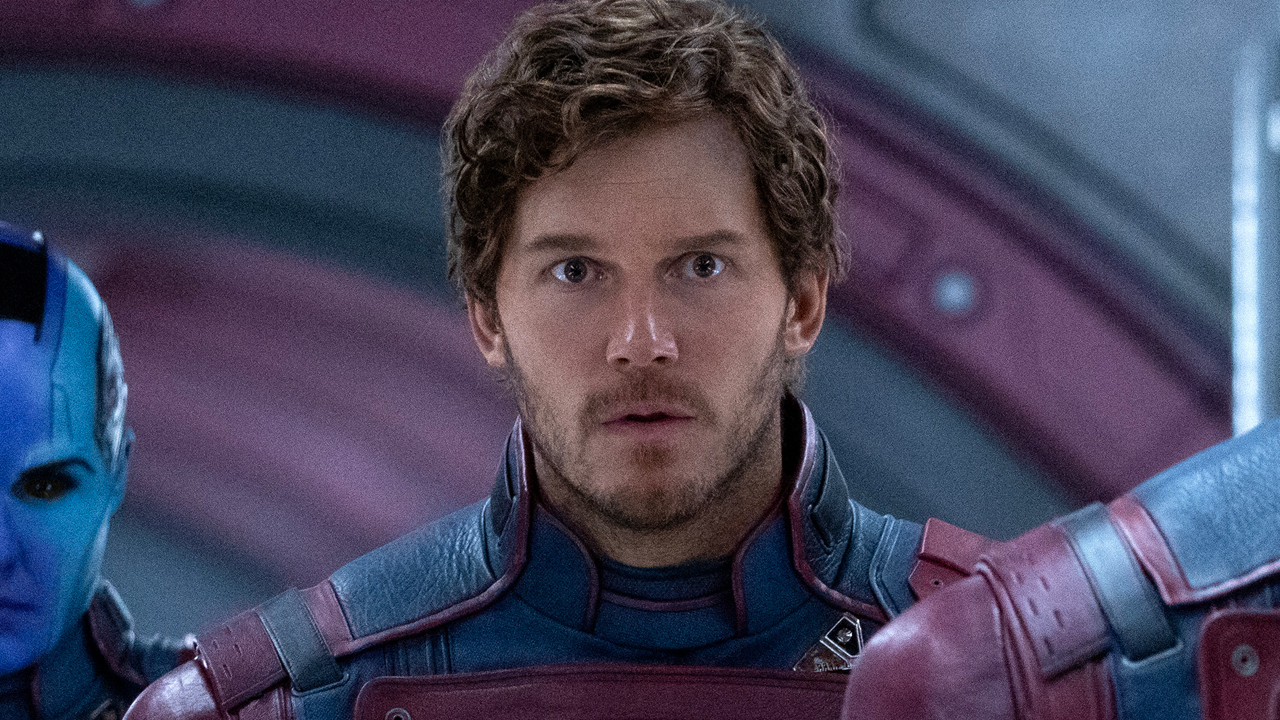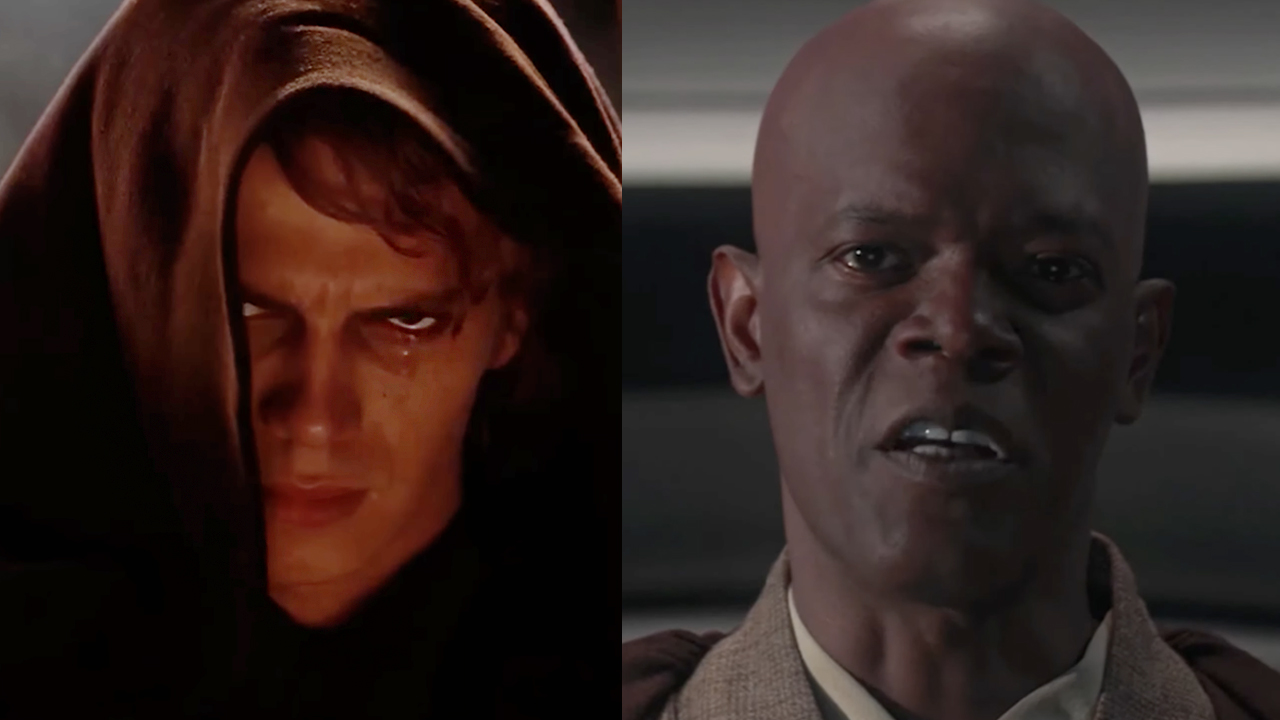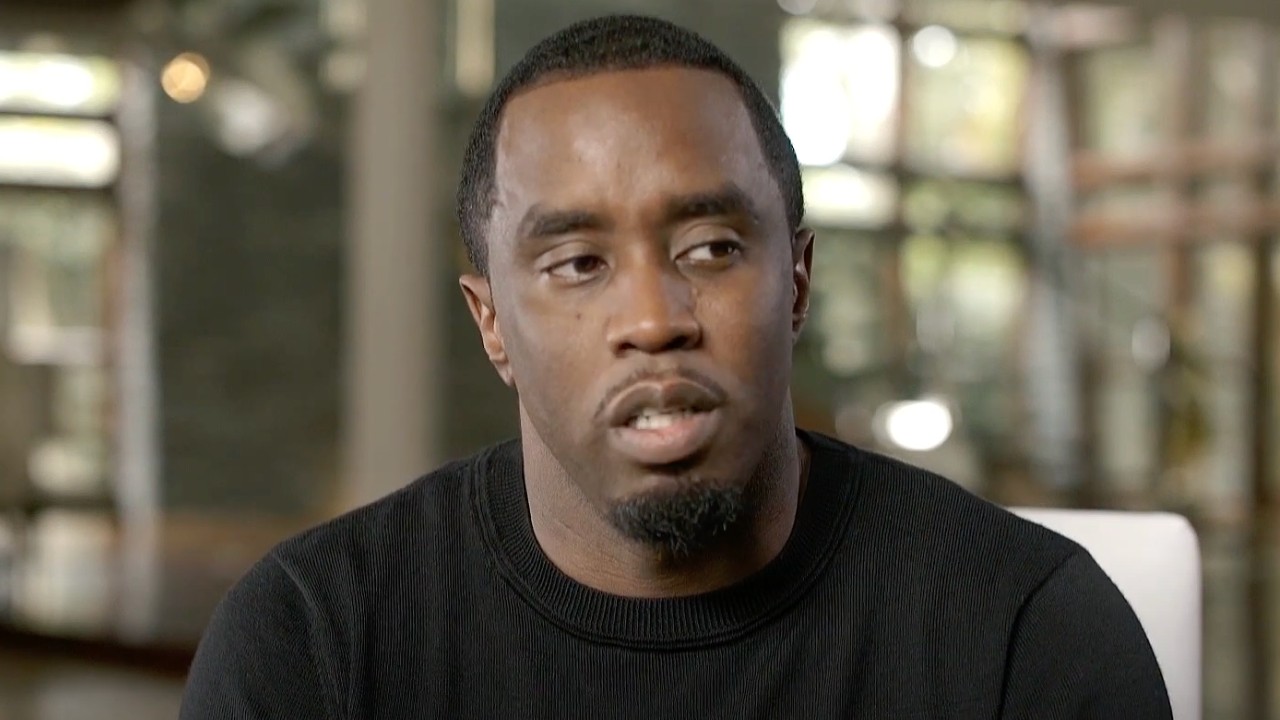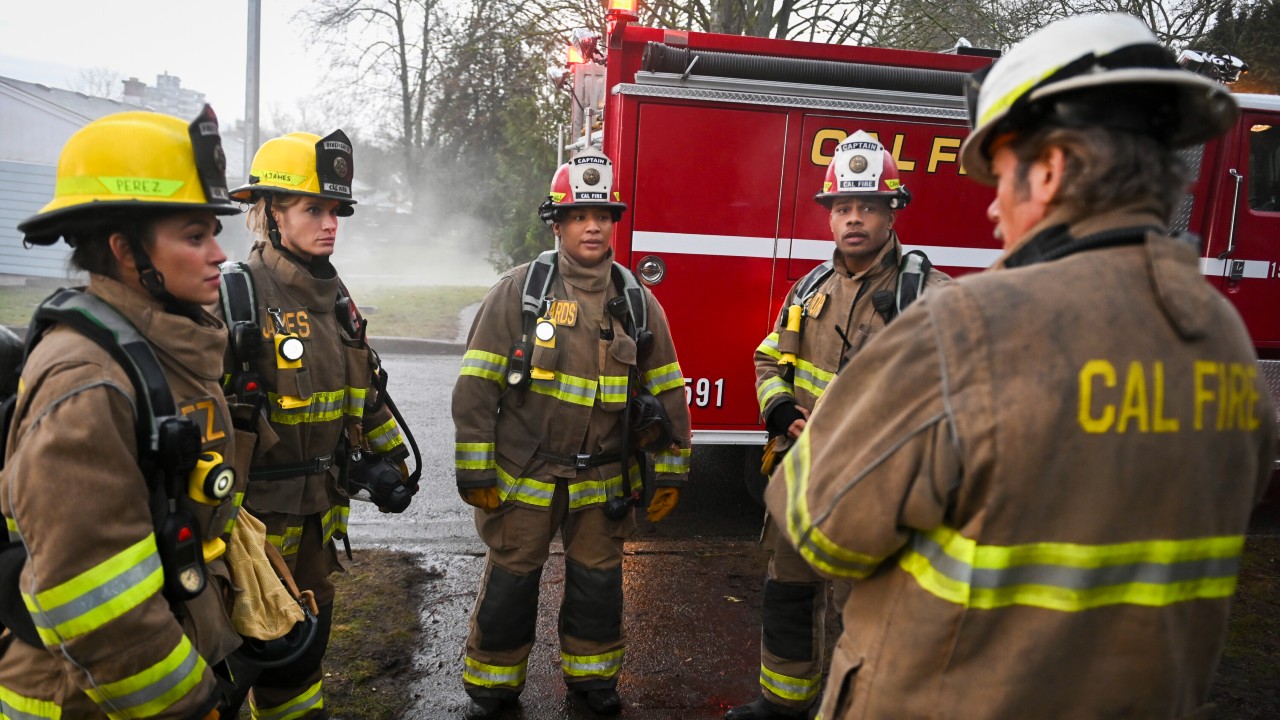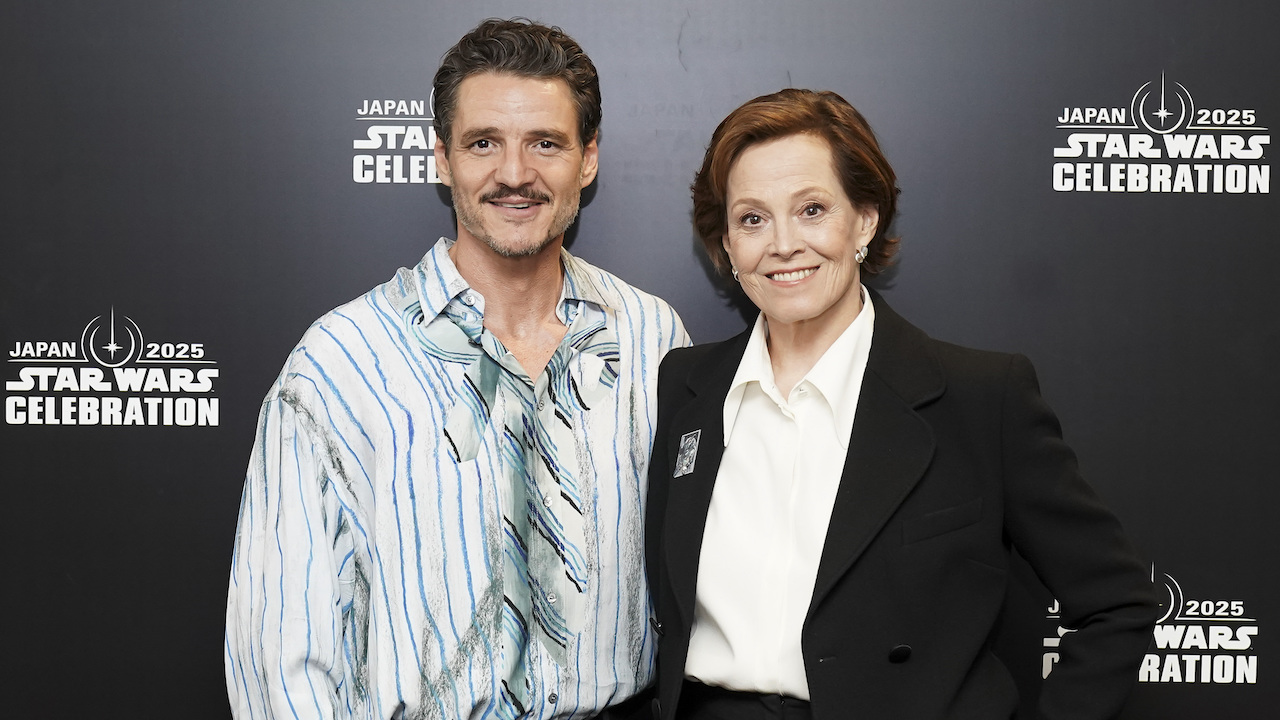Interview: Scott Pilgrim Creator Bryan Lee O'Malley And Writer Michael Bacall
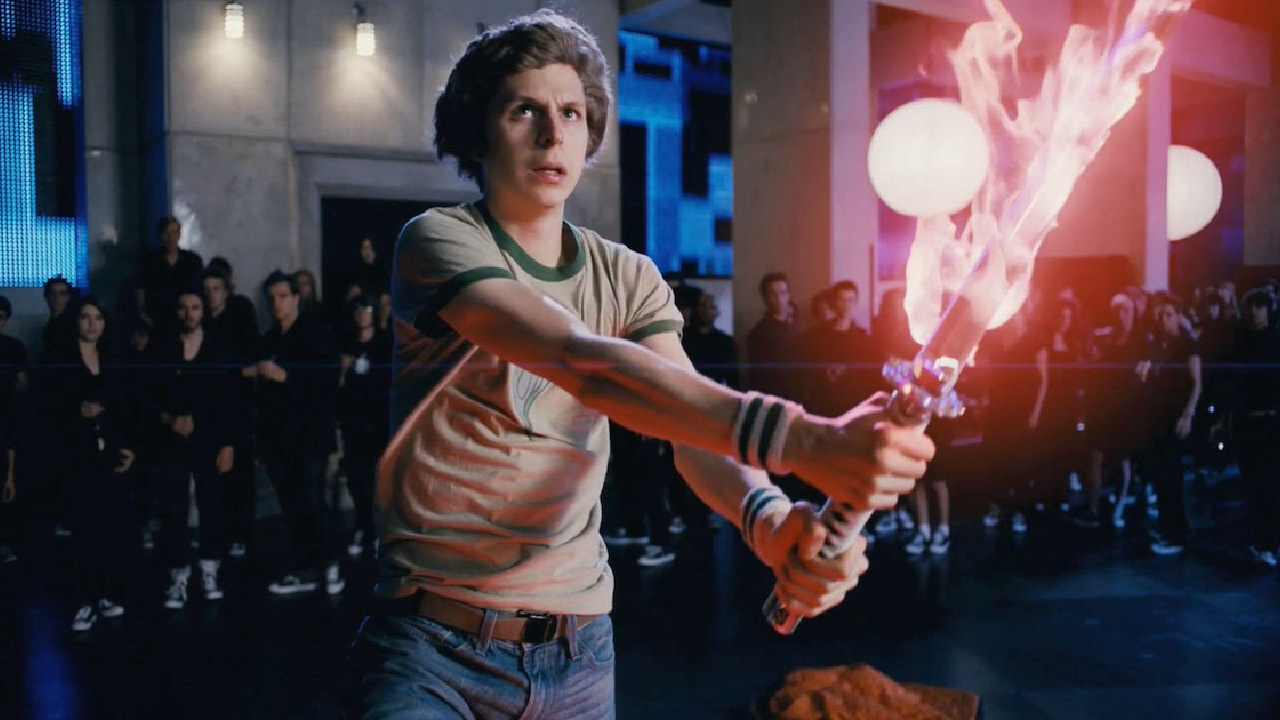
When the decision came down to adapt Bryan Lee O’Malley’s Scott Pilgrim series into a movie, it was never considered that they would make it into a franchise. Thus, Edgar Wright, Michael Bacall and O’Malley had a mission: condense a story told in six books down to one movie.
Sitting down with Bacall and O’Malley to discuss the undertaking, conversation ranged from discussing the reaction at Comic Con and storyboarding to the inspiration behind the monster during the face-off against the Katayanagi Twins. Check out the interview below.
Were you guys able to see it at Comic Con?
Michael Bacall: Yes.
What was that experience like?
MB: Sweet.
BLO: The second night was the loudest, by all reports, yeah. I don’t know. We all have our theories as to why, but we saw it the whole way through the first night. That was amazing. An experience like no other.
CINEMABLEND NEWSLETTER
Your Daily Blend of Entertainment News
MB: Yeah. I’ve been to several World Cups, I’ve seen Korea play in Korea, in a 60,000 seat stadium, I’ve gone to Slayer concerts. This was right up there on the decibel meter. It was crazy.
BLO: Yeah, I heard a roar like that during the last game of the World Cup, when the whole town was freaking out. But yeah, it was 1,600 people. Playing a movie like this at Comic Con is like a hometown crowd. Bruce Springsteen in Jersey.
MB: Definitely.
Did it feel good to see all the jokes really hit? It seemed like, I don’t think that one missed
BLO: “Ciao, Knives.”
MB: I guess that’s why they call it a way homer.
BLO: Edgar is convinced it’s a way homer, but I don’t think so. I don’t think so.
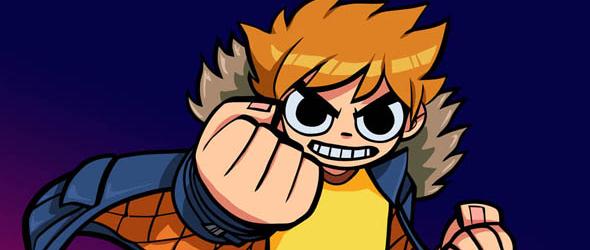
So there weren’t any arguments during this thing about how something was adapted, or was everybody happy… you guys happy with each other, or what was the deal?
MB: Yeah, we’re bros.
BLO: Yeah, we’re good
MB: We bro out.
BLO: I kind of always expected that it would be something completely different. I kind of expected them to just take the concept and run with it. I think at the time we started, it was around the time that Sin City came out. So this is like before this new wave of movies that are strongly based on the graphic novel, that use it as a storyboard. So that kind of has changed everything gradually.
MB: Yeah. We tried to… I think we were more protective of a lot of Bryan’s stuff from the books than he was.
BLO: I would have eliminated the character of… I don’t know. There’s so many characters. I don’t want to be specific; actors will get mad at me.
Well what got left out that maybe you wish you’d had in? Was there something that…
BLO: I don’t know.
You liked everything?
BLO: I would have cut everything. I mean, I know you’ve got a few things, but it’s like… I feel that it didn’t really need anymore right now.
MB: I would have liked to see a brain crack in half and a baby bird come out and go “peep!”
Next movie.
MB: I also would have like to see Honest Ed’s get destroyed. Which is the giant discount store in Toronto.
Is there a story behind that? Did Honest Ed do you wrong at some point?
MB: Honest Ed’s is an amazing institution. I think we can call it an institution at this point.
BLO: Yeah, it’s sixty years old at this point.
MB: We went there for research, and we got lost. If you read Book 3, it’s a pretty accurate depiction of Honest Ed’s. And it gets destroyed in Book 3.
BLO: It’s like a discount store that’s really harshly lit with fluorescents, and is full of signage. There’s so many signs in it. It’s also full of weird old theater props, because the owner was like a big theater producer, and he passed away a few years ago. So, you know, respect.
MB: It’s a wonderful and amazing place that also would be really fun to destroy. Kind of like the Death Star. But I think the movie was dense enough without trying to implode a giant building.
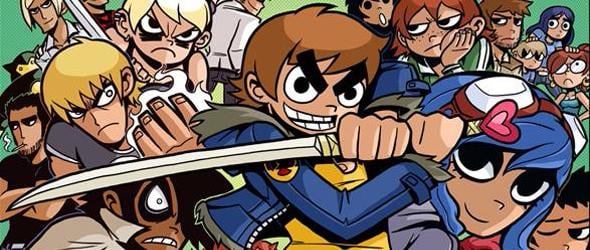
Was there any video game that you really wanted to kind of pay tribute to that you couldn’t squeeze in? Because you got a lot.
BLO: There’s a lot in the book and there’s a lot in the movie. I don’t know if there’s anything that we missed.
What was your favorite one that you did pay tribute to then?
BLO: I’m always partial to Ninja Gaiden, which got in a little bit in the Gideon fight. In the book, it’s in the Roxie fight, in the movie, it’s in the Gideon fight.
Sort of the inverse question, what elements from Book 6 made it into the movie?
BLO: Well, Book 6 is a little weird because I was working on it while we made the movie, so stuff from the movie actually made it into Book 6 in some ways. And I stole a few lines of dialogue because I felt like I was entitled. And also Book 6 came out first, so I could pretend that I wrote them.
MB: Bryan was gracious enough to send us the script version of Book 6 before drawing the book, right before we started production. So we tried to integrate as many things as we could, as many gags as we could. Then obviously, the ending moment of Book 6 was highly influential in figuring out how to end the movie.
How long ago did you have that image? Was that from the get-go?
BLO: I had the image fairly early on, I think. But the ending of Volume 6 kind of evolved for me. I think originally, it was going to be a little more open-ended, and then went for a more Ramona-esque direction.
What did you think about the actors that were cast? Was it just ideal? Not that you’re going to say, “I hate ‘em all!” but did they have the right feeling for you and everything?
BLO: Yeah, it’s pretty incredible. I think that’s one of Edgar’s gifts, one of his many gifts. He just has this eye for it. When he said that he wanted Chris Evans and Brandon Routh for the movie, I was like, “That’s not going to happen.” And then it totally happened. It was dream casting all around.
MB: I remember when Brandon Routh walked in for a casting meeting, and I was sitting there with Edgar. He walked in and he was standing there in front of us, and I kind of looked at Edgar, and I wanted to say it but I didn’t, but in my mind I said it. And what I said was, “Holy shit, it’s Superman!”
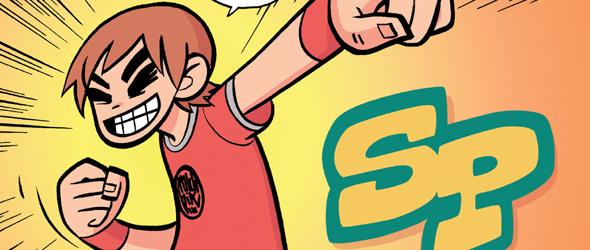
Can you talk a little bit about the screenwriting process with Edgar? How involved was he with you?
MB: We did it all. In the early stages, I was going to write the screenplay while he worked on preproduction for Hot Fuzz. We sat down and had a couple of meetings, and got along, and he seemed to be increasingly getting into the world and into the universe. And he said, “Would it be cool if we both wrote this?” So I did a backflip and then calmed down and said, “Of course. Yeah that’s cool, that’s cool.”
BLO: I forgot that he didn’t sign on to co-write until later.
MB: So then we started working together, and he would be in Los Angeles for a couple of weeks for some meetings, then fly back to London to do prep for Hot Fuzz, and also to work on the production draft for that. So he was multi-tasking at a pretty intense level. So we would work in Los Angeles when he was here, and then we would work via email when he was in London. And then I would fly to London a couple of times and we would work there. So we were kind of all over the place, and we just would use every co-writing method known to man. We would trade off scenes. We would write the same scene at the same time, and then trade and rewrite each other’s thing until it kind of became one. It was a blast. It was a kind of keep-you-on-your-toes method of writing that was really challenging and enjoyable.
Well then, he took what you wrote and storyboarded it like a comic? I’m kind of confused; I read that somewhere. The storyboards were intense on this. They were like finished.
MB: Very, very serious.
So you didn’t do [previsualization] on the computer.
BLO: There was [previsualization] on the computer too. But a lot of it was taken directly from the books. So they took everything that they could from the books, from scene to scene, and then Edgar’s brother Oscar is a really talented artist, and he would draw additional scenes in the same style. I think there were two or three other storyboard artists eventually.
MB: Edgar starts off doing thumbnail sketches for the storyboard, and then he has such a mind meld with his brother that those thumbnails become more detailed storyboards. Then depending on what’s needed for the particular sequence, that goes all the way up to the [previsualization].
BLO: I really hope we get to publish the storyboards, because Oscar worked so hard on them. They’re beautiful. He could have drawn the last book for me. I wish he did.
There were a lot of people walking out of the theater that I talked to that were calling this the first of its kind, which is very hard to find nowadays when everything is a remake, and because it’s an amalgamation of so many different things, and yet it’s completely unique. Do you guys feel that way? Do you guys feel like you’ve brought something? And at the same time, are you going to be pissed if people start ripping this off down the line?
BLO: It’s already started happening in comics, I think. But when I started the books, I didn’t think anyone was going to read them because there wasn’t anything else like it. Even down to the format. I just didn’t know it was going to happen; we didn’t sell very many copies at first, but it just started snowballing. Turns out a lot of people like it. They like the video game stuff. They like the weird fusion of the Japanese comics, the video games, the music, everything, but bringing it down to earth with the relationship story. It works for people.
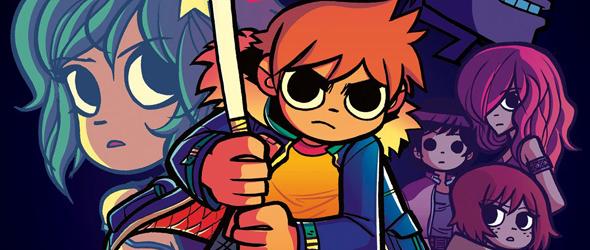
Bryan, how far along into the books were you when a movie started to come onto the radar, and did that sort of influence the books when that came along?
BLO: I think I was partway through the second book when Edgar first called me. He called me from a cab; he couldn’t even sit down in one place to call me, because he’s always on the go. And obviously, it was early on in the process. I didn’t really think that anything would come of it. I was getting calls from Hollywood guys, and I was like, “Oh sure, that’s great.” I don’t know that it influenced the book that much. I think it did a little bit. As the books go on, you feel this like… you know, Envy Adams shows up, and she’s kind of a famous person, and I’m starting to meet different people, and this kind of stuff creeps into the books. A strange anecdote is, the whole Lucas Lee scene is actually inspired when I walked by the film set of a Hillary Duff movie called The Perfect Man, I think. It was actually produced by Mark Platt, the guys who produced this movie were doing that movie. I walked by, before this movie ever started, and I was inspired to put that scene in the book. It came back around to haunt me.
MB: Edgar and I had a lot of discussions about trying to protect Bryan’s process, and not influence him too much, and screw up something we were huge fans of. Sometimes we wanted to put him in a little cave.
BLO: As the fan base has grown, I’ve had to kind of try and divorce my process from that, the feedback, so it’s been a tightrope. But I think I’ve managed, for the most part, to walk it.
I wanted to ask about the avatars. You’ve got the two dragons, but they’re fighting this… it’s supposed to be a green yeti or something, but to me, it looked like the id monster from the original Forbidden Planet.
BLO: I think that was the inspiration, yes. I think it’s like a yeti, like a sasquatch, like a Canadian type of monster was the idea. But yeah, Forbidden Planet.
Because somebody leaned over to me and said, “What is that?” I said, “I don’t know. It’s furry and it’s mean, just leave it alone.”
MB: It’s the green-eyed yeti.
BLO: The green-eyed yeti, that’s what they called it.
Bryan, I assume that you spent a good amount of time on set. Did you have any input during the actual filming process?
BLO: I did when they asked. I didn’t want to get in the way, much the way they didn’t want to get in the way of the book. I’m not a filmmaker. But it seems like almost every morning, Edgar and Michael would email me and be like, “We need more jokes for today!” We would all just kind of riff and make new stuff up. The one line that always reminds me of that stuff is, there’s a part where Todd turns to the camera and goes, “It sounds like it’s time to get funky,” or something like that. We wrote like ten jokes for that, and probably shot all of them. Even when I was at home, I would be getting these emails; it felt like I was involved.
MB: You were involved.
That seems kind of crazy, because most of the jokes seem to directly play into something that happens in the moment. Like there’s going to be a phone call, and all of a sudden you see Anna Kendrick on the other line. Were you literally able to be that spontaneous still within how precise everything had to be?
BLO: Most of the little jokes they were going to me for were buttons, just little one-liners and things like that.
MB: Yeah, like for the Todd example outside of the club before he goes in to have the bass-off. It was just a button moment for that particular scene that leads into the bass-off.
BLO: It could have been anything.
MB: Yeah, those kind of lines, you can do a lot of different versions.
BLO: I think, “He’s going down, vegan-style” was the book line.
MB: Yeah. Then we had, “Bring me my bass: the good one.”
BLO: We wrote a ton of lines. I’m sure they’ll all show up on the DVD. But there’s a lot of scenes like that.
One of the criticisms leveled against Marvel these days is that they’re no longer producing comics. They’re just producing platforms to be turned into movies. Do you think there’s a danger of that for smaller comics, for indie comics?
BLO: Yeah. It’s already happening. I feel like a lot of people come into indie comics because it’s a cheap and easy way to get something that looks like a movie and show it to movie producers. Which I think is a crappy way to do comics. It’s not a way to make a good comic anyway. And then, yeah, the Marvel style these days is a kind of photorealistic, pseudo-movie look. I don’t think that’s the strength of comics. I’d prefer to see everything look exactly like Scott Pilgrim.
What would you say is the way into this movie for people who maybe don’t get all the references?
BLO: I’m hoping through the relationship story. Everyone’s probably had a relationship in their lives, that they can kind of intuitively understand what these relationships mean to us, and just get it somewhere on this gut level.
MB: In the way of, even like a historical drama where you’re not completely familiar with the time, or even the setting. If you can understand the human emotions at play, then hopefully that’s what becomes important in the story. Everybody can relate to having their heart broken. Everybody can probably relate to wanting to punch out a former ex of your current lover. Hopefully that’s what will connect to a larger audience, those kind of themes.

Eric Eisenberg is the Assistant Managing Editor at CinemaBlend. After graduating Boston University and earning a bachelor’s degree in journalism, he took a part-time job as a staff writer for CinemaBlend, and after six months was offered the opportunity to move to Los Angeles and take on a newly created West Coast Editor position. Over a decade later, he's continuing to advance his interests and expertise. In addition to conducting filmmaker interviews and contributing to the news and feature content of the site, Eric also oversees the Movie Reviews section, writes the the weekend box office report (published Sundays), and is the site's resident Stephen King expert. He has two King-related columns.
Sigourney Weaver Told Me About Aliens Handing Her Drinks And Puppeteers Making Grogu Come Alive On The Mandalorian Movie Set, And I Wish I Could Have Been A Fly On The Wall
A24’s The Legend Of Ochi Hired A YouTuber Making Bird Sounds In His Basement To Work On The Movie, And I'm Wowed By The Whole Process
